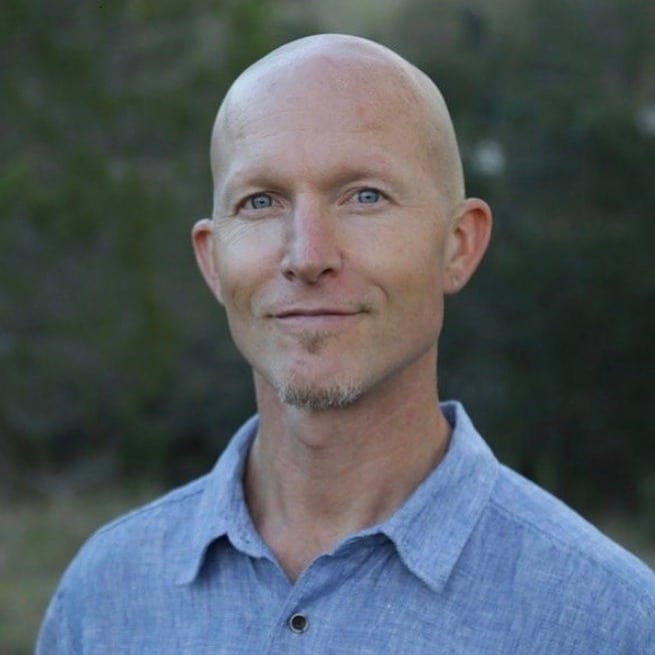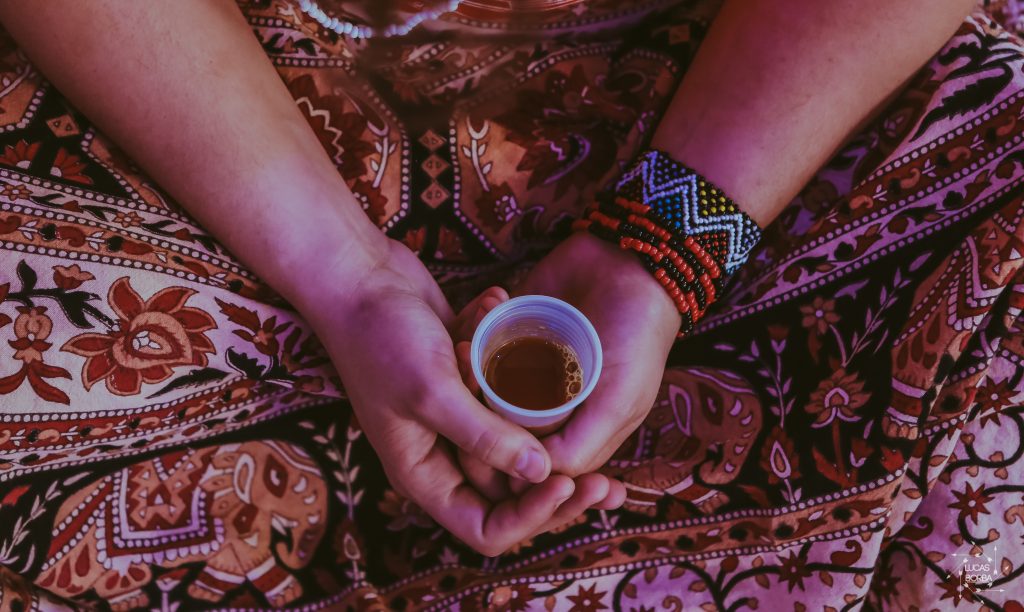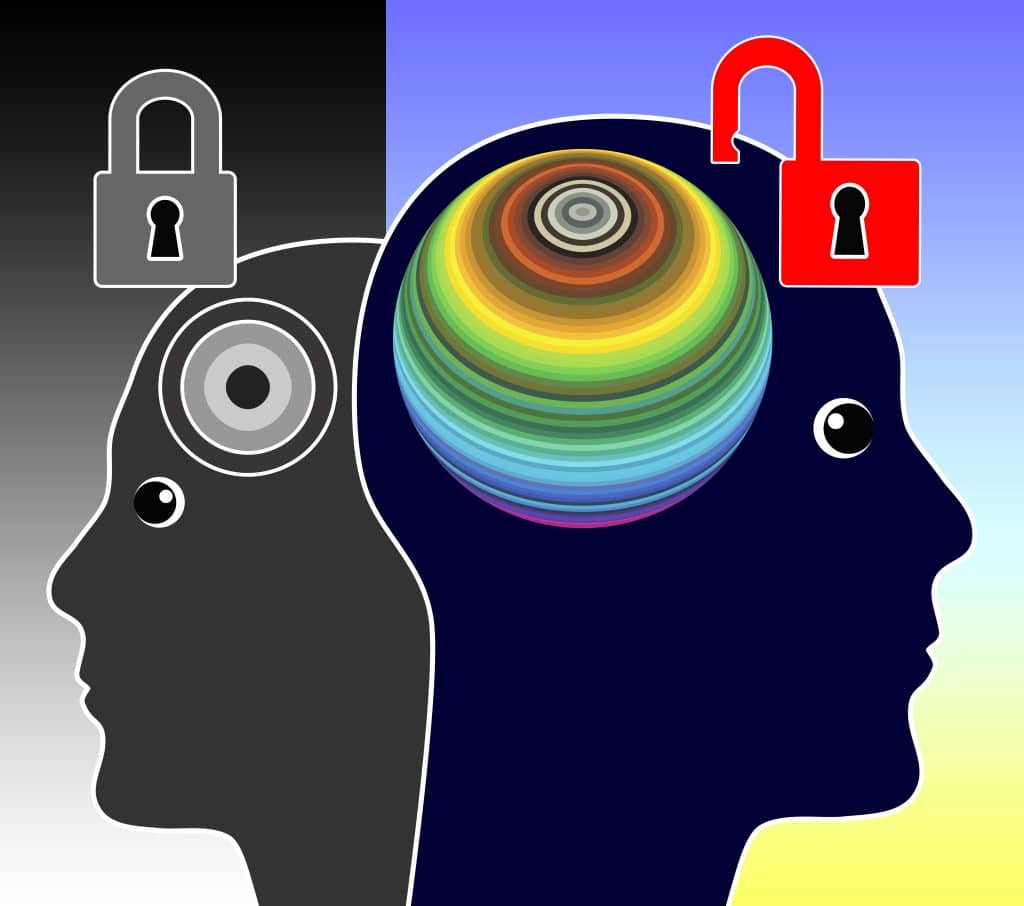Podcaster and Onnit co-founder, Aubrey Marcus, is a proponent of using psychedelics for both self-development and healing trauma. He regularly talks to guests who are experts in this field. On a recent show, he talked with Dr. Dan Engle, a psychiatrist, entrepreneur and author, who has a unique background in neurocognitive restoration and psychedelic research.
Marcus refers to Dr. Engle as a “thought leader” in the psychedelic research space, and praises the doctor’s recent book, “A Dose of Hope,” about MDMA-assisted therapy. The book is a No.1 bestseller on Amazon. In this podcast, Dr. Engle dives into the current psychedelic renaissance, exploring the healing traits of individual psychedelics, explaining why and how they work differently.
To stay current on everything important happening in the industry, as well as gain access to deals on cannabis flowers, vapes, edibles, and much more (various cannabinoids to choose from), make sure to subscribe to The Cannadelics Weekly Newsletter. Enjoy responsibly!
Dr. Engle’s Background
It’s worth mentioning that Dr. Engle’s is a hands-on researcher. He and Marcus met around 15 years ago in the desert town of Sedona. Even back then, Marcus thought of Engle as the “future of medicine” due to his experience as a medical doctor, holistic therapist and psychedelic researcher. He has spent years in the Amazon Jungle.
Engle sees “all the medical interventions as having a place at the table.” He gives the example of the time he broke his neck, saying: “When that happened I didn’t go to see my homeopath.” He recognizes that emergency care services, pharmaceuticals and surgery are essential in some cases, but also that the body’s natural healing process can be enhanced with holistic and psychedelic modalities.
Over the course of his career, Engle has explored different “dogmas,” but thanks psychedelics for opening his mind to the possibility of integration. For five years before going into the jungle, he went the “other extreme,” and was “against all allopathic medicine.” So much so that when he picked up a virus during his first ayahuasca experience and his body went into septic shock, he refused to take antibiotics.

However, ayahuasca changed his thinking. “I learned more about myself in one weekend with ayahuasca than one decade of psychiatric training,” he says. Back then he was angry with the psychiatric field for “bastardizing sacred plant medicine technologies.” But ayahuasca gave him new hope because he could see the value in being a “bridge” between the allopathic and plant medicine.
Meeting Ayahuasca
Dr. Engle stresses the importance of having the right mindset, attitude and grace when interacting with any plant medicine. Ultimately, he sees plant medicine as a vector that teaches a person about themselves, and warns: “Those that come into our lives to be reflections of our power, integrity and value system, sometimes … come in really uncomfortable ways.”
He believes there’s a valid reason why he got so sick during his first ayahuasca experience, and it had to do with his attitude. He explains how he had been on a “diet” for weeks at that point. “Dieting” is the term that’s used to describe the traditional way of working with plants to get to know them better and receive their energy or gifts. It involves food restrictions but only to allow deeper connections with nature.
During his diet, Engle was receiving lots of information about integrative medicine, and got so excited about all he was learning, he approached the ceremonial shaman, and in bad Spanish, told him, “You’re my teacher,” and offered a gift. Shortly after, Engle got sick, and for years after that first experience, his ayahuasca journey was “blocked,” meaning the plant had mild to no effect on him.
It took him years to piece the story together and fully understand what had happened. First, he realized his audacity to walk into a “sacred space that had been held for lineage of shamans,” and demand to be a student. But also, he had given the shaman a gift, which in the world of plant medicine enabled a part of Engle’s energetic field to be drained.
Five years later, he went to a retreat, and on the first night, he dreamt of being visited by a different shaman who told him he was “carrying a blockage.” During the ceremony he attended that evening, the ceremonial shaman performed intense icaros over him, and Engle could feel the pressure inside his body. Until finally there was a release and “the visual landscape opened up,” and suddenly he felt, “whole, free, light and inspired.”
Seeing Trauma as an Ally
Engle admits that when he came back from the Amazon, he was dealing with suicidal depression due to the personal challenge of re-integrating back into day-to-day life. After experiencing the ceremony where his blocks were released, he realized everything that had happened over the previous five years of his plant medicine journey was exactly what he needed, it was all “for him.”

During his meditations, he was focusing on principles that were of value to him: humility, integrity, reverence and gratitude – using them as guides for his interactions, for how to “walk in the world.” Though he wasn’t aware of it at the time, that mindset was causing him to live with a sort of “victim mentality.” In many ways, his first shaman, the one who blocked him, turned out to be his best teacher.
He revealed, the “shamanic path is a power path, not a spiritual path.” This discovery prompted a “total reframe” for Engle. For the first time he could see that life was happening “for him not to him,” and he came to understand that whatever lessons come along the way, it was up to him to imbue his “power with spiritual virtues and values.” The experience taught Engle the hardest life lessons are typically the best teachers, and it’s possible to “turn trauma into an ally.”
Marcus picks up on this point, describing his own run-ins with the “dark side” on psychedelics, saying that the experience can be “scary” but “what it’s showing you is a mirror,” and with it, the knowledge that “the darkness is within you.” Engle agrees, and says it takes “a lot of courage to come face-to-face” with that dark force. Both men recognize that this is often the most challenging aspect of using psychedelics.
As challenging as it is, Engle believes it’s also vitally important, as the “darkness” is needed to “hone the light.” He explains that there’s a spectrum of consciousness along which everything exists, both good and bad, and we always have the choice to enter “the dark path, whatever that means,” but the adversarial force is necessary, as it prompts us to cement our values.
New Perspectives with Psychedelics
“The ego doesn’t know the difference between annihilation and transformation because the ego experiences them as the same,” explains Dr. Engle, “We go through this annihilating process so we can deprogram all of the ego constructs that we’re imbued with [through childhood, as well as] trans-generationally [and] collectively. We have to be deprogramed of all those things to come back to our inherent nature.”
He calls this process both “disorientating,” “highly uncomfortable” and “highly inconvenient,” especially in today’s society, where “we don’t have the time or the space for that.” Current mental health models that reduce the mind to “chemical components” don’t hold up for him, as he’s an advocate of what he calls “soul-centered” medicine. In this model, he takes into consideration a person’s “karma” (past experience), “persona” (current state) and “darma” (sense of purpose.)
Engle is a proponent of taking “radical responsibility” for our lives, and in that action, he believes it’s impossible not to feel the power that each individual possesses. He takes the idea one step further, saying that each individual is responsible for the ongoing “expansion” of the universe, and that’s what makes us to powerful on both an individual and collective level.

However, he also notes that our psychology has yet to catch up with the speed of our technological evolution, which is why so many people feel overwhelmed. He doesn’t want people to overlook the travesties of modern life, he wants people to be able to see the catastrophes and understand that they are part of life. For him, this is where psychedelics play a key role, as they can help people get to the point of being able to hold and accept both the beauty and horror of existence.
Final Thoughts
Dr. Engle is a fascinating character, a doctor who takes his practice so seriously, it’s not enough for him to read the research of others, he has to experience it firsthand. That not only gives him an edge, but also means he’s full of hard-won wisdom. One of his heroes is Victor Frankl, the Austrian psychiatrist, and he quotes him, saying: “The last of the great human freedoms is the ability to choose one’s attitude in any given circumstance.” For Engle, plant medicine and psychedelics have the unique ability to guide people towards that choice. Check out this podcast, it’s well worth the watch, and may just change your understanding of psychedelics.
Hello readers! We appreciate you joining us at Cannadelics.com, a top choice news platform for independent coverage of the growing cannabis and psychedelics landscapes of today. Come by the site whenever possible for updates on current and world-changing events, and head over to the Cannadelics Weekly Newsletter, so you’re always up on what’s going down.
The post Dr. Dan Engle on Using Psychedelics to Heal Trauma appeared first on Cannadelics.
Via https://cannadelics.com/2022/10/14/dr-dan-engle-on-using-psychedelics-to-heal-trauma/
source https://rosalinaklerkx.weebly.com/blog/dr-dan-engle-on-using-psychedelics-to-heal-trauma
No comments:
Post a Comment